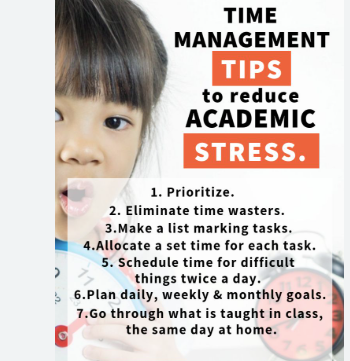Academic life is full of opportunities to learn, grow, and succeed—but it often comes with a fair share of pressure. Whether it’s preparing for exams, meeting assignment deadlines, or managing expectations from yourself and others, the demands can feel overwhelming. The good news is that there are positive, healthy ways to deal with academic stress, and you’re not alone in facing it.
1. Get Organized and Plan Ahead
One of the most effective ways to reduce academic pressure is by staying organized. Use a planner, digital calendar, or a simple to-do list to map out your tasks. Prioritize what’s most important and break large projects into smaller steps. Instead of facing one big deadline, you’ll have manageable checkpoints that help you stay on track and reduce last-minute stress. Planning ahead also gives you more time to ask for help if needed and avoids the panic of rushing through tasks at the last moment.
2. Set Goals That Motivate, Not Overwhelm
Setting goals can be inspiring, but they should be realistic and achievable. If you aim too high too fast, you might end up feeling frustrated instead of encouraged. Start with smaller goals—like reading a chapter a day or writing a few hundred words of an essay—and build from there. Every time you complete a step, you’re closer to your larger goal. Over time, these small victories build confidence and a sense of accomplishment.
3. Make Time for Breaks and Rest
Your brain needs time to recharge. Studying for long periods without breaks can reduce your concentration and retention. Try studying in focused blocks of time, like 25–45 minutes, followed by a short break. Use this time to walk around, stretch, get fresh air, or do something enjoyable that helps you relax. Rest is not a waste of time—it’s essential to maintaining mental clarity and motivation.
4. Talk to Others and Share What You’re Feeling
Academic pressure often feels heavier when you try to handle everything alone. Talk to someone you trust—like a friend, family member, teacher, or counselor. Simply voicing your thoughts and concerns can help relieve stress and give you a new perspective. You might also find that others are going through similar challenges and can offer tips, empathy, or encouragement. Study groups or accountability partners can also provide support and structure.
5. Prioritize Self-Care and Healthy Habits
Maintaining a healthy routine is crucial when managing stress. Get enough sleep, eat balanced meals, and stay active. Even simple habits, like drinking enough water or taking a few deep breaths, can help regulate your mood and energy. Avoid skipping meals or sacrificing sleep to study more—your brain functions best when it’s well-nourished and rested. Try incorporating mindfulness, journaling, or short meditations to stay grounded and present.
6. Learn to Say No to Overcommitment
It’s easy to take on too much, especially when you want to be involved in every activity or meet everyone’s expectations. But it’s okay to say no. Respect your limits and give yourself permission to focus on what matters most. If your schedule is too full, try reducing extracurriculars or adjusting your workload. Protecting your time and energy is a form of self-respect.
7. Focus on Effort, Not Just Results
Grades are important, but they don’t define your worth or potential. Focus on learning and the effort you’re putting in, rather than only the outcome. Everyone has strengths and weaknesses, and growth takes time. Be patient with yourself. Progress is progress—even if it’s slow. By shifting your mindset to value improvement over perfection, you can ease the pressure and build resilience.
8. Reach Out When You Need Support
Sometimes, academic pressure can feel like too much to handle alone. That’s when it’s important to seek help from professionals. Most schools and universities have support services, such as academic advisors, counselors, or tutoring centers. These resources are there to help you succeed, not judge you. Asking for help isn’t a sign of weakness—it’s a wise and courageous step toward balance and success.
Conclusion
Dealing with academic pressure is something every student faces at some point, but it doesn’t have to take a toll on your well-being. With the right tools—organization, realistic goals, rest, communication, and self-care—you can navigate your studies with more confidence and calm. Remember, it’s okay to take things one step at a time. Be kind to yourself, recognize your efforts, and know that you’re capable of managing the challenges that come your way. Success is not just about grades—it’s also about how you grow, adapt, and care for yourself along the journey.













